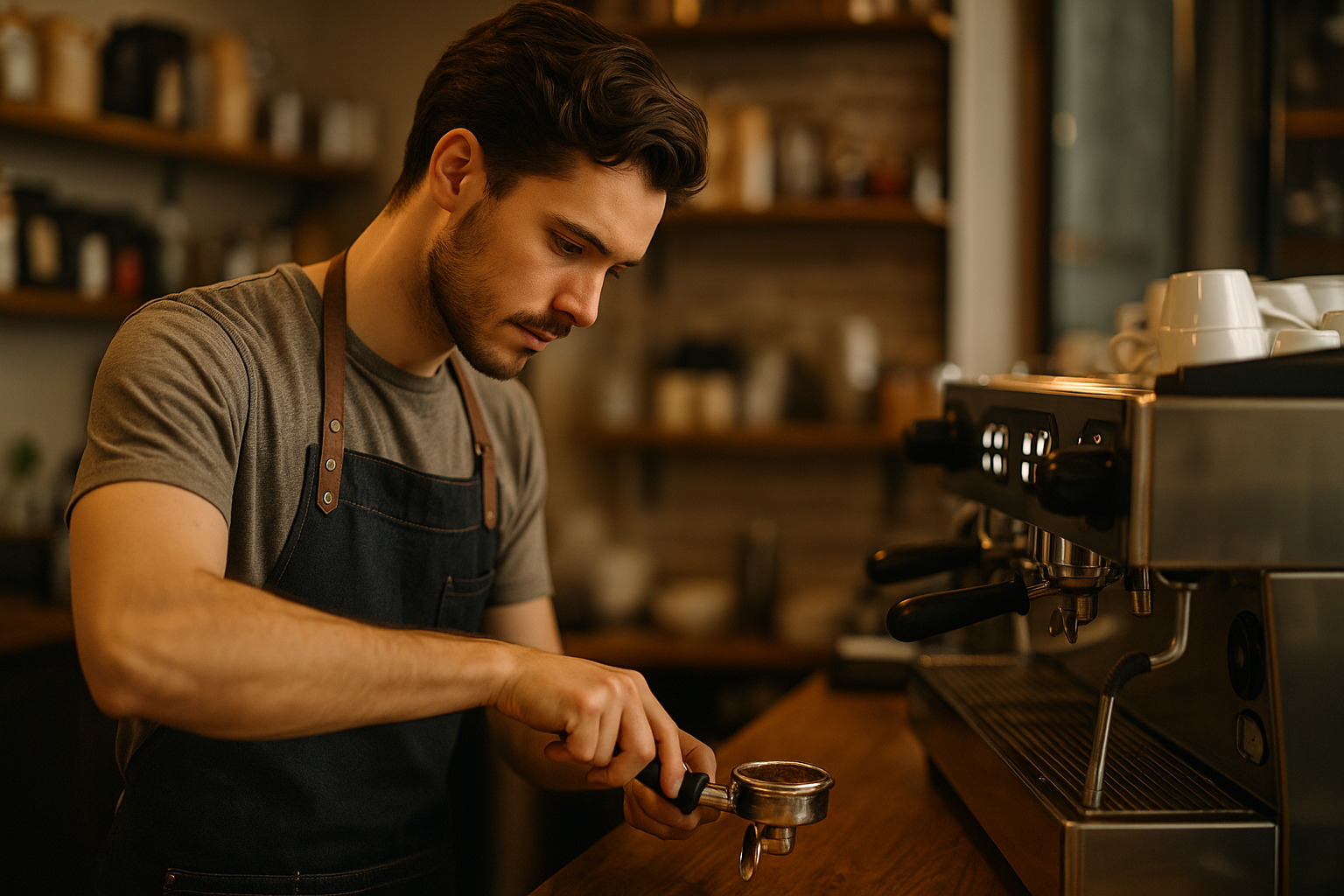Entering the world of coffee can be exciting, but becoming a great barista requires more than just knowing how to press a button on a machine. It’s a skill-based profession where attention to detail, consistency, and customer interaction are key to success.
If you’re just starting out, here are the top 10 essential skills you should begin developing now.
1. Espresso Extraction
The heart of being a barista lies in espresso. Knowing how to extract a balanced shot is foundational. You need to understand:
- Grind size
- Dose
- Tamping
- Brew ratio
Mastering these elements helps you create a consistent and flavorful espresso shot every time.
2. Milk Texturing
Great milk texture is essential for both taste and presentation. Learning how to steam milk properly to create microfoam takes practice. This involves:
- Positioning the steam wand
- Listening to the milk stretching
- Creating a whirlpool motion
Good milk complements espresso and is vital for drinks like cappuccinos and lattes.
3. Cleanliness and Organization
Keeping your station clean isn’t just about looks. A clean bar prevents cross-contamination and improves workflow. Always wipe the steam wand, clean the portafilter, and purge the grinder regularly.
Organized tools also help you move faster and reduce errors during busy shifts.
4. Customer Service
Being friendly and approachable goes a long way. Baristas often build relationships with regular customers, and a welcoming attitude creates loyalty. Practice:
- Smiling and maintaining eye contact
- Being patient during questions
- Remembering customer preferences
Great coffee is important, but great service is unforgettable.
5. Time Management
Coffee shops can get hectic. Learning how to multitask and stay calm during peak hours will make your shifts smoother. You’ll need to:
- Prioritize drink orders
- Manage cleaning between tasks
- Handle multiple machines if needed
Efficiency improves both your speed and customer satisfaction.
6. Sensory Skills
A good barista can taste differences in coffee and describe them accurately. Begin developing your palate by:
- Tasting different beans and roasts
- Noting flavor notes like acidity, sweetness, and bitterness
- Comparing brew methods
Over time, this makes you better at adjusting recipes and identifying issues in extraction.
7. Coffee Knowledge
Knowing what you’re serving builds trust with customers. Learn about:
- Coffee origins and regions
- Processing methods (washed, natural, honey)
- Roast profiles
Being able to explain a coffee’s story enhances the customer experience and shows professionalism.
8. Basic Machine Maintenance
Understanding how to maintain your equipment helps avoid breakdowns and improves coffee quality. Learn how to:
- Backflush the espresso machine
- Clean the group heads and steam wand
- Calibrate the grinder
Daily care extends machine life and ensures consistency.
9. Workflow Awareness
In a café setting, you’re part of a team. Being aware of your space, your colleagues’ positions, and the current order queue keeps things running smoothly. Practice:
- Communicating clearly with teammates
- Moving efficiently without rushing
- Anticipating the next steps
Good workflow prevents mistakes and builds strong team dynamics.
10. Willingness to Learn
Finally, one of the most important skills is a humble mindset. Coffee trends, tools, and techniques are always evolving. Stay open by:
- Watching tutorials
- Asking experienced baristas questions
- Accepting feedback positively
The best baristas are those who never stop improving.
Practice Makes Perfect
Don’t worry if you don’t master all these skills at once. Focus on one or two each week. For example:
- Week 1: Espresso extraction
- Week 2: Milk steaming
- Week 3: Customer interaction
With repetition, these will become second nature.
How to Practice Without a Job
Even if you’re not employed as a barista yet, you can begin practicing. Use manual brewing at home to understand coffee basics. Volunteer at events, or ask local cafés if they offer training shifts.
You can also roleplay customer service scenarios with friends or record yourself preparing drinks to critique your technique.
The Path to a Professional Barista
As you develop these core skills, you’ll become more confident. Employers look for passion, discipline, and trainability. Focus on building good habits now, and you’ll stand out when applying for jobs.
Every top barista started where you are—curious, motivated, and willing to learn

Artur is a coffee enthusiast and content creator passionate about barista techniques and coffee culture. With a sharp eye for detail and a love for learning, he shares practical tips, brewing guides, and gear insights to help readers elevate their coffee experience — from home brewers to aspiring professionals.
